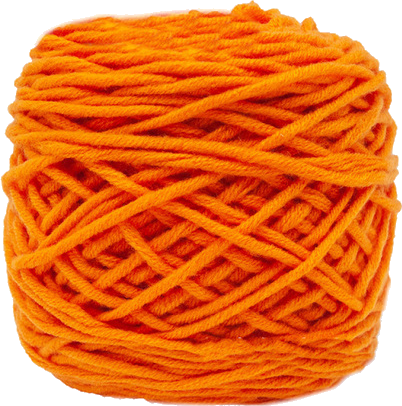
This image has format transparent PNG with resolution 402x406.
You can download this image in best resolution from this page and use it for design and web design.
Ball yarn PNG with transparent background you can download for free, just click on download button.
Yarn is a long continuous length of interlocked fibres, used in sewing, crocheting, knitting, weaving, embroidery, ropemaking, and the production of textiles. Thread is a type of yarn intended for sewing by hand or machine. Modern manufactured sewing threads may be finished with wax or other lubricants to withstand the stresses involved in sewing. Embroidery threads are yarns specifically designed for needlework. Yarn can be made of a number of natural or synthetic materials, and comes in a variety of colors and thicknesses (referred to as "weights"). Although yarn may be dyed different colours, most yarns are solid coloured with a uniform hue.
The human production of yarn is known to have existed since the Stone Age and earlier prehistory, with ancient fiber materials developing from animal hides, to reeds, to early fabrics. Cotton, wool, and silk were the first materials for yarn, and textile trade contributed immensely to the ancient global economy.
Some examples of synthetic fibers that are used as yarn are nylon, acrylic fiber, rayon,[8] and polyester. Synthetic fibers are generally extruded in continuous strands of gel-state materials. These strands are drawn (stretched), annealed (hardened), and cured to obtain properties desirable for later processing.
Synthetic fibers come in three basic forms: staple, tow, and filament. Staple is cut fibers, generally sold in lengths up to 120 mm. Tow is a continuous "rope" of fibers consisting of many filaments loosely joined side-to-side. Filament is a continuous strand consisting of anything from 1 filament to many. Synthetic fiber is most often measured in a weight per linear measurement basis, along with cut length. Denier and Dtex are the most common weight to length measures. Cut-length only applies to staple fiber.
Filament extrusion is sometimes referred to as "spinning" but most people equate spinning with spun yarn production.
In this page you can download free PNG images: Ball of yarn PNG images free download